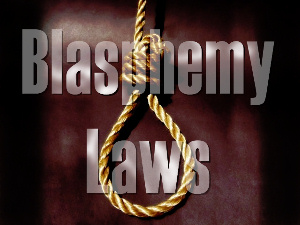The Deobandi outfits mainly Jamaat-e-Islami and both factions of Jamiat Ulema-e-Islam (JUI) are also equally responsible for the Shia genocide in Pakistan because they have formed a Deobandis alliance in which banned terrorist outfit ASWJ/Sipah-e-Sahaba/Lashkar-e-Jhangvi are also one of the allies. That encouraged them to continue their anti-humanity and anti-Islam fanaticism and terrorism in the name of Wahhabis-allied Deobandi Islam.
Sheikh Ataur Rehman, the jailed ameer (chief) of Jund-us-Shaitan (the Army of Satan), was sentenced to death for the June 10, 2004 bomb attack on the cavalcade of the then Corps Commander Karachi, Lt Gen Ahsan Saleem Hayat. But, he keeps dodging death for a decade.
“Our target was the Shia community mosque. They are our enemies,” said Fahad Marwat, the central spokesperson of Wahhabis-allied Deobandi-takfiri Jund-ush-Shaitan in a statement released from an undisclosed location.
The spokesman had earlier announced allegiance of his group to the Arab Wahhabi takfiri Daish (ISIL or ISIS) on November 17, 2014 after holding a meeting with a three-member takfiri Daish delegation which had travelled from Syria under the leadership of Al Zubair Al Kuwaiti for the moot. “They (ISIL) are our brothers, whatever plan they have we will support them,” said Fahad Marwat after the meeting.
JuSh, which used to be an affiliate of the Deobandi takfiri Tehrik-e-Taliban Pakistan (TTP) before pledging allegiance to the ISIL or Daish recently, confirmed the Balochistan meeting between them and Daish leaders.
JuSh, which used to be an affiliate of the Deobandi takfiri Tehrik-e-Taliban Pakistan (TTP) before pledging allegiance to the ISIL or Daish recently, confirmed the Balochistan meeting between them and Daish leaders.
Before carrying out the Shikarpur bombing, JuSh had claimed responsibility for the November 26, 2014 killing of four anti-polio workers in Karachi, including three women. They had also claimed credit for the October 23, 2014 suicide attack on Deobandi JUI-F leader Fazlur Rahman in Quetta who had a narrow escape because of the bullet-proof land cruiser he was travelling in. after that attack, Fazlur Rehman was scared and he immediately formed an alliance with takfiri Deobandi terrorist outfit ASWJ/Sipah-e-Sahaba in the name of Deobandis alliance.
The founding ameer of JuSh, Sheikh Ataur Rehman, used to be a student leader of the Karachi University, belonging to the Islami Jamiat Tulaba (IJT), student wing of Jamaat-e-Islami. He was handed down death sentence by an Anti-Terrorist Court (ATC) of Karachi for the June 2004 bombing on the convoy of the then Karachi Corps Commander Karachi Lt Gen Ahsan Saleem Hayat. . Investigations into the Clifton bridge attack on the motorcade, revealed the involvement of Jund-ush-Shaitan (JuSh), which at that time was led by Ataur Rehman and patronized by the South Waziristan-based Deobandi takfiri Taliban commander, Nek Mohammad.
Barely six days after the botched attack Nek Mohammad was killed in the first-ever US drone strike on the Pakistani soil, on June 17, 2004. However, Sheikh Ataur Rehman, who is currently imprisoned at the Karachi Central Jail, is lucky enough to have dodged the gallows even after a lapse of ten years, as the Sindh High Court has yet to decide his appeal against the death sentence handed down by the Karachi ATC.
Amir Mir has reported in The News that according to the information gathered by the security agencies, an intriguing common aspect in the profiles of most of the JuSh members is their past association with the Jamaat-e-Islami (JI) and the IJT. JuSh, which was established by Ataur Rehman, was originally a small cell of 20 Deobandi takfiri militants, most of them in their twenties and thirties; educated from professional working classes and mostly belonging to IJT. Ataur Rehman was assisted in recruiting youngsters to wage ‘jihad’ by Karachi’s Dr Arshad Waheed, an orthopaedic surgeon, his brother Dr Akmal Waheed, also a neurosurgeon and Engineer Ahsan Aziz. They were not only active members of the JI’s Medical Wing, Pakistan Islamic Medical Association, but also had close links with Kashmiri Salahuddin-led Hizbul Mujahideen.
In short, modern takfiri terrorism originated from Afghan war that was hijacked by the U.S.-led West through its intelligence agency CIA and allied-Saudi intelligence who invented al-Qaeda and Taliban to advance their illegitimate and imperialistic interests around the world. Takfiris also defamed Kashmiri resistance to Indian occupation by hijacking the legitimate freedom struggle.
Amir Mir has reported in The News that according to the information gathered by the security agencies, an intriguing common aspect in the profiles of most of the JuSh members is their past association with the Jamaat-e-Islami (JI) and the IJT. JuSh, which was established by Ataur Rehman, was originally a small cell of 20 Deobandi takfiri militants, most of them in their twenties and thirties; educated from professional working classes and mostly belonging to IJT. Ataur Rehman was assisted in recruiting youngsters to wage ‘jihad’ by Karachi’s Dr Arshad Waheed, an orthopaedic surgeon, his brother Dr Akmal Waheed, also a neurosurgeon and Engineer Ahsan Aziz. They were not only active members of the JI’s Medical Wing, Pakistan Islamic Medical Association, but also had close links with Kashmiri Salahuddin-led Hizbul Mujahideen.
In short, modern takfiri terrorism originated from Afghan war that was hijacked by the U.S.-led West through its intelligence agency CIA and allied-Saudi intelligence who invented al-Qaeda and Taliban to advance their illegitimate and imperialistic interests around the world. Takfiris also defamed Kashmiri resistance to Indian occupation by hijacking the legitimate freedom struggle.
So, Wahhabis, their allied Deobandis and their patrons within ruling establishment of Pakistan are responsible for Shikarpur Imam Bargah Massacre and unabated Shia genocide across Pakistan alongside terrorist attacks on innocent Pakistani Sunni and non-Muslim civilians.
http://www.shiitenews.org/index.php/shiitenews/pakistan/deobandis-and-government-responsible-for-shikarpur-imam-bargah-massacre















